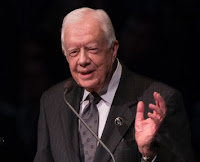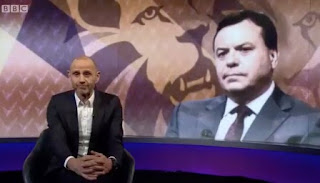The Times [£] in a leader: "Researchers have found that millennials in the United States are subscribing to traditional news publications in record numbers. Since the election of Donald Trump, old titles like The Economist, The Washington Post and The Wall Street Journal have seen much of their subscriber growth among under-35s. The picture on this side of the Atlantic is less clear, but there are signs that British youngsters will pay for their news too. According to research by Compass, a media start-up, two thirds of students at Russell Group universities say that they would pay a regular fee for journalism they trust."
News UK’s chief operating officer David Dinsmore speaking at the Press Gazette Digital Media Summit: “We have arrived at a moment in time and it is not an exaggeration to say that where we go from here will shape our democracy and society. We will either forge genuine, mutually beneficial partnerships between news gatherers and platforms or we will watch as the news becomes ever more fake and public faith in democracy collapses.”
Anna Bridgeman @HouseofBargain on Twitter: "Fully support #payinterns. I interned for almost a year in London, 4 years ago (in various national magazines) and wasn’t paid a penny."
Yevgenia Albats, a Russian magazine editor, quoted by the Guardian after Tatyana Felgenhauer of the Ekho Moskvy radio station, was stabbed: “The amount of aggression directed towards liberal journalists in this country from state media and elsewhere is overwhelming and non-stop. Nobody is going to defend us; we’re the enemies of everyone.”
Former US President Jimmy Carter, interviewed in the New York Times: “I think the media have been harder on Trump than any other president certainly that I’ve known about, I think they feel free to claim that Trump is mentally deranged and everything else without hesitation.”
Donald Trump on Twitter: "Keep hearing about "tiny" amount of money spent on Facebook ads. What about the billions of dollars of Fake News on CNN, ABC, NBC & CBS?"
Brexit backer Aaron Banks in a statement to Newsnight: “Since the referendum result and my support for Donald Trump I’ve been the subject of politically motivated attacks by mainstream media and Remain-supporting institutions. It comes as no surprise that Newsnight would join the party at this late stage with their own particular type of trashy News of The World journalism. After allegations of me being a Russian spy, part of a worldwide conspiracy to subvert democracy, the only surprise is how long its taken for Newsnight to have a pop at me. BBC Fake News is alive and well.”
Kurt Wagner on Recode: "Facebook may make it harder for people to see publishers’ stories, unless those publishers pay to promote them. As part of a new test in six countries, Facebook is taking content from publishers and businesses out of its main feed. Instead, those posts will exist in a separate, hard-to-find feed that Facebook recently launched for discovering new stuff, called the 'Explore Feed.'...Though Facebook claims it doesn’t plan to roll this out globally right now, the fact that Facebook is even testing it should be terrifying for publishers, almost all of whom rely heavily on Facebook’s News Feed for distribution."
[£]=paywall








































